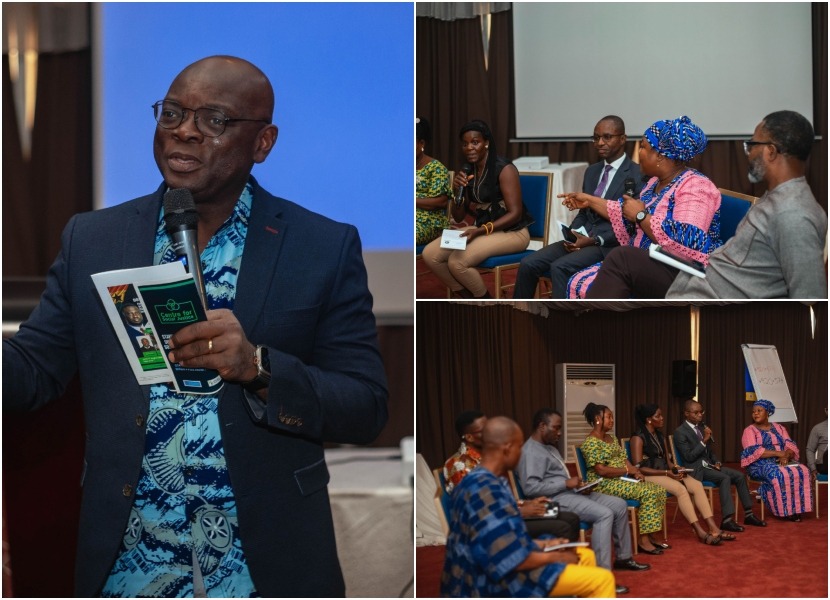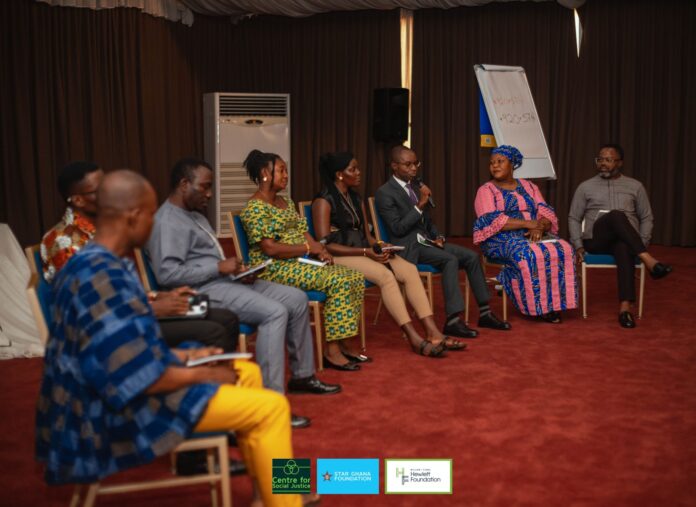Women in agriculture and petty traders left Kumasi with renewed optimism after a high-level forum brought them face-to-face with banks, insurance providers, regulators, and policymakers to tackle long-standing barriers to financial inclusion and social protection in Ghana’s informal sector.
The August 7 dialogue, themed “Bridging the Gap: Financial Inclusion & Social Protection for Informal Sector Workers”, was organised by the Centre for Social Justice (CSJ) under the Voice Influence and Inclusive Development (AVID II) project, in partnership with Star Ghana Foundation and funded by the Flora and Hewlett Foundation.
For many participants, from farmers in Asesewa to traders from the Bono and Eastern regions, the forum provided a rare chance to voice concerns directly to decision-makers and hear about solutions tailored to their needs.

Prof Alexander Ansah Manu, Executive Director of CSJ, said the event was designed to bridge a critical gap between those who deliver financial and insurance services and those who struggle to access them.
Chairing the well-attended event, he pointed to issues such as prohibitive collateral requirements for loans, high interest rates that erode profits, and insurance policies that fail to provide meaningful cover after disasters such as market fires.
“We have brought these community groups into the same room with banks, insurance companies, and regulators so they can speak directly to one another,” Prof Manu told the press on the sidelines of the event. “Even if nothing else comes of it, we’ve created a platform for mutual understanding and collaboration.”
Participants also discovered new opportunities, including digital platforms and service providers that connect farmers to ready markets for their produce, information many participants at the event said would help improve incomes and reduce post-harvest losses.
The Kumasi forum is the first in a series, with a second regional engagement scheduled for Northern Ghana.
Prisca Ansah, Project Lead for AVID II, said the process goes beyond just identifying challenges. It also involves securing commitments from policymakers and regulators, then following up to ensure that recommendations from such forums are implemented. This, she noted, is how lasting change can take root in addressing the structural issues faced by informal sector workers.
CSJ plans to consolidate the findings from both fora into evidence-based recommendations for policymakers, aiming to influence reforms that make financial products more accessible and practical for informal sector workers.
Ashanti Regional Minister Frank Amoakohene, in remarks delivered on his behalf by Senior Social Development Officer Godfred Abogo, acknowledged the systemic barriers confronting informal workers.
He pledged the government’s collaboration with microfinance institutions to design affordable, tailored financial solutions for women in agriculture and market women.
For many attendees, the forum marked a turning point, not just in the conversation about informal sector challenges but also in the possibility of a lasting solution that reflects their lived realities.
DISCLAIMER: The Views, Comments, Opinions, Contributions and Statements made by Readers and Contributors on this platform do not necessarily represent the views or policy of Multimedia Group Limited.
DISCLAIMER: The Views, Comments, Opinions, Contributions and Statements made by Readers and Contributors on this platform do not necessarily represent the views or policy of Multimedia Group Limited.


